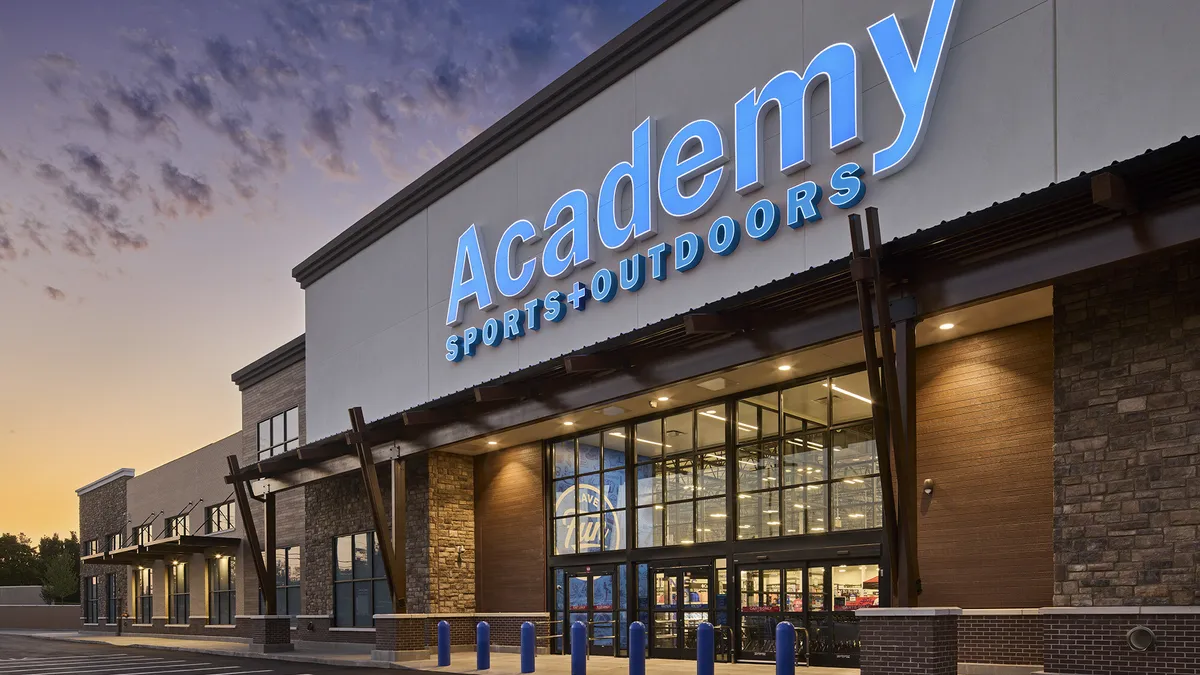Group a diverse array of consumer packaged goods (CPG) companies under one umbrella and you get what Geoff Freeman called a "hodgepodge collection." The president and CEO of the Grocery Manufacturers Association (GMA) said some of the companies are consumer-facing brands, others are related to food service and others have agricultural interests.
Freeman, who joined GMA last August, has set out on a mission to unite the seemingly disparate contingent of manufacturers. While GMA members may differ in the products they produce or sell, on a high level they care about — and struggle with — the same issues.
"They care about a frictionless supply chain. That is at the top of the list," Freeman told Supply Chain Dive in an interview.
Shared challenges in the end-to-end supply chain
Through conversations with members during his 10 months on the job so far, Freeman has discovered CPG companies struggle with cost and inefficiencies on the logistics end of the supply chain.
CPG executives on earnings calls often point fingers at transportation and last-mile costs as the cause of eroding margins. Shifting consumer trends, such as the growth in online grocery and direct-to-consumer purchases, mean CPG brands must adjust their supply chains accordingly — while continuing to keep costs in check.
"Getting that product, primarily from the manufacturing facility into the consumer's hands, is where so much cost and inefficiency is associated."

Geoff Freeman
President and CEO, Grocery Manufacturers Association
Since Freeman took the helm at GMA, the sourcing and procurement end of the value chain has also created significant headwinds for CPG companies. Tariffs on steel and aluminum created higher raw material costs for Campbell Soup and likely other brands reliant on aluminum cans for packaging.
"I think in this environment, they just don't know what the heck to do about it," Freeman said in reference to the tariffs. "This is an area where things have really been shaken up in town ... And the typical levers of power, the typical way you confront some of these issues, may not be available to you."
How GMA seeks to smooth member supply chains
Freeman outlined a number of initiatives to help GMA members mitigate tariffs and boost overall efficiency in the supply chain. He said the association is partnering with several coalitions to ensure tariff impact on CPG companies gets the attention it deserves but didn't dive into specifics.
Freeman also launched an initiative with many members to map the costs in their supply chains as a way to examine antiquated or unnecessary costs, and what opportunities could streamline operations.
Transportation capacity and the driver shortage typically come to mind as supply chain challenges, "but there have to be countless others," he said. "And that's where I'm pushing the team and some of our partners to really identify what those other components are, so that we can build an agenda around that."
Perhaps most pivotal to optimizing the supply chain is GMA's search for a head of supply chain, someone who isn't focused on individual aspects like trade or transportation, but instead "really gets the big picture," according to Freeman. The executive, officially titled Vice President of Supply Chain, will be a new position at GMA, signaling the importance of prioritizing supply chain on the association's agenda.
CPG companies embrace supply chain tenets of sustainability, traceability
Sustainability in packaging has emerged as an issue the CPG industry has embraced, in some aspects driven by consumer awareness and demand. Grocers are one type of company at the forefront of the movement, with Aldi, Trader Joe's and Walmart, among others, committing to reduced or fully recyclable plastic packaging.
"100% of our 25 biggest companies have all made commitments in this space. This is an area where people recognize that we have a responsibility as an industry," Freeman said. "You know, packaging is our middle name."
The introduction of Loop earlier this year, a reusable packaging system developed by TerraCycle, holds promise for the future of waste-free packaging and circular supply chain. GMA members, such Procter & Gamble brands — Cascade, Crest, Febreeze, Gillette, Oral B, Pantene and Tide — Clorox and Hidden Valley Ranch, have partnered with Loop to develop reusable packaging.
The sustainability push has also gone hand in hand with a consumer desire for transparency. Companies across industries have invested in technologies to drive greater traceability throughout their supply chains, with blockchain one of the notable ones tracking products from origin to consumer. GMA's SmartLabel initiative adds transparency to the industry, allowing consumers access to product information.
"We can get caught up everyday on things that divide us ... or we can realize that there's a 64,000-pound gorilla here called traceability," Freeman said.
Getting caught up in the differences and thinking as a vertical, not an umbrella, is where Freeman said GMA misstepped in the past. The association started to struggle in 2017 when big names like Nestlé, Tyson Foods and Hershey abandoned GMA membership, claiming their stances on important issues weren't aligned.
Freeman is hopeful for the future, though, as he finds companies have more common ground than they do differences on interests, risks and pain points. Companies across industries are focused on growth, and in the CPG space in particular, brands are uniting behind the fact that optimized supply chains are essential.
"You can't speak with these companies, you can't listen to an earnings call, without understanding that getting that product, primarily from the manufacturing facility into the consumer's hands, is where so much cost and inefficiency is associated," Freeman said. "It's where profitability in many instances is determined."






















